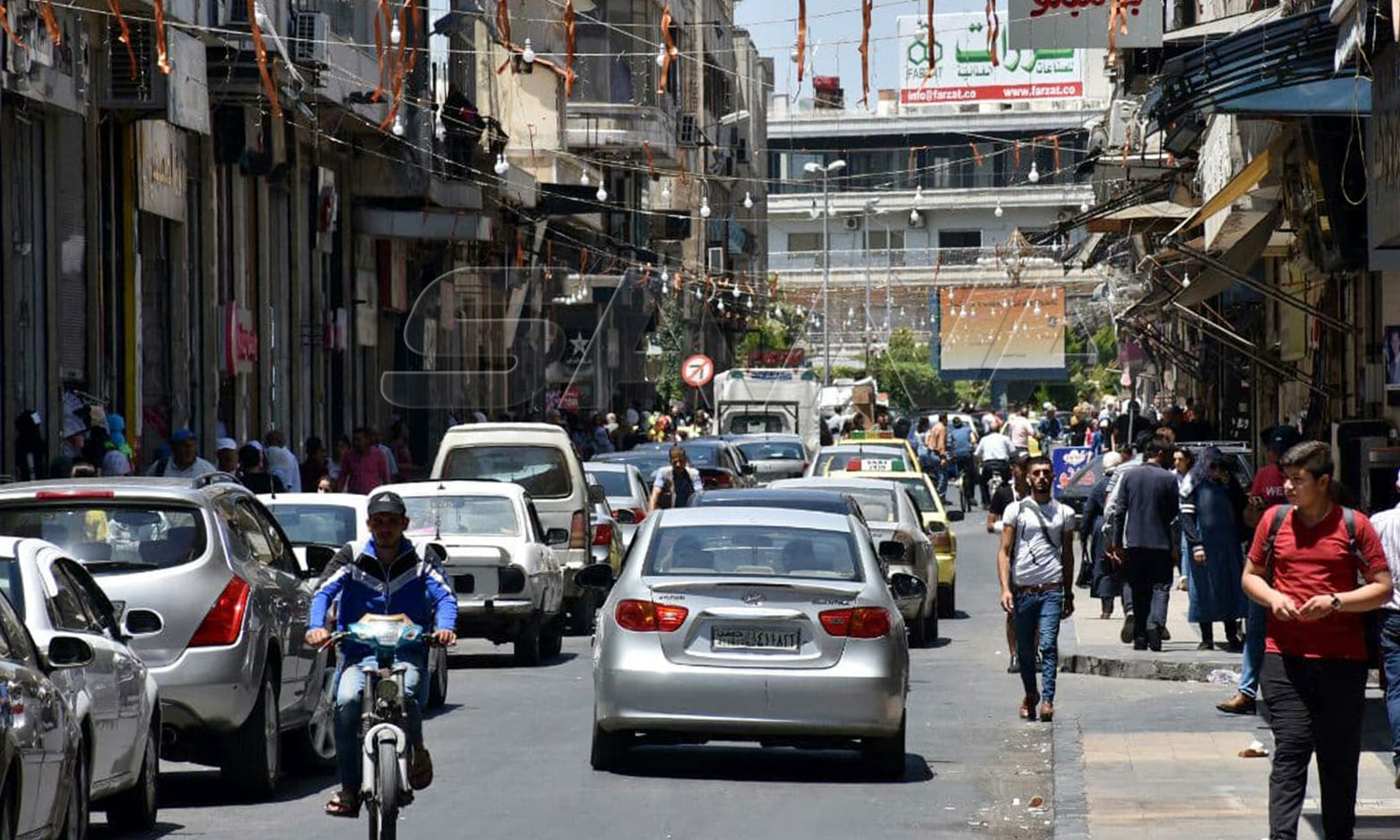



Enab Baladi – Homs
Remittances on the black market are booming in the month of Ramadan and the approaching of Eid al-Fitr due to the large difference in the exchange rate between the black market and the licensed money exchange companies, which depend on the pricing of the Central Bank of Syria (CBS).
In the central city of Homs, the remittance tariffs were raised by 50 percent in the black market, from 4 to 6 USD, in an attempt to reap more profits from the residents, taking advantage of the difference of more than 1000 SYP in the exchange rate between the black market and the Central Bank.
In turn, and in an attempt to reduce the difference between the formal and black markets, the Central Bank published a statement on Facebook on 13 April, stating that the price of the banks and exchange bulletin had been raised, which was followed by increasing the exchange rate of 1 USD in personal transfers from 2500 to 2800 SYP, which is the price that is applied to the remittances of international non-governmental organizations, UN organizations, and the Western Union company.
Despite the risk that the recipients of remittances may be exposed to through the black market’s money transfer offices in Homs, which are legally prohibited, it remains the best option for the residents as the exchange rate is applied according to the daily market trading.
Abu Anwar, 63, a resident of al-Rastan city in the northern countryside of Homs (declined to be named for security reasons), told Enab Baladi that his son regularly sends him money from Europe, but after raising the exchange rate of remittances by government-licensed companies, a loss reached of exchanging each 100 USD to about 30 USD (120,000 SYP), which made black market traders take advantage of the situation by raising their fees and maximizing their profits, Abu Anwar added.
The Syrian regime imposes security oversight on money transfer companies, which has paved the way for many cases of security extortion that residents have been subjected to when they receive large sums of money transfers.
Transferring through black market traders remains people’s most preferred option despite the exploitation, as they receive their remittances in dollars, especially after the government of the Syrian regime issued a series of decisions prohibiting the exchange or transfer of money in currencies other than the Syrian pound, for remittances of less than 5000 USD.
One of the owners of money transfer offices in the black market confirmed to Enab Baladi that most customers of small transfers receive their money in dollars and that owners of large transfers often prefer to receive half of the remittance in Syrian pounds and the other half in US dollars.
The wide difference between the exchange rates and the security tightening prompted the owners of transfer offices in the black market to raise the transfer tariffs, justifying this procedure for their dangerous work and the fact that they deliver the transfers at the real price.
The owner of the transfer office added to Enab Baladi that despite raising the fees to 6 percent from 4 percent, it is not worth anything in exchange for losses and security restrictions on remittances through government-licensed companies.
“If we consider the exchange rate difference between the state-controlled market and black markets as a fee for transferring the amount, the transfer fee will be 35 percent through the licensed companies, meaning the difference between us is 30 percent, which is a very big difference,” he added.
The Syrian regime tightens its security grip on the black market by the implementation of decrees (3) and (4), which were issued by the head of the regime, Bashar al-Assad, on 18 January 2020, and set the penalty for dealing in other than the Syrian pound with imprisonment for seven years with hard labor, and a financial fine equals twice the value of the payments or the amount dealt with.
The restrictions came in an attempt to limit remittances through transfer and exchange companies licensed by the Central Bank to raise more foreign currencies and benefit from the exchange difference.
(The Syrian Central Bank sets 2,814 SYP for 1 USD, but the pound is trading around 3,900 to the dollar in the black market).
if you think the article contain wrong information or you have additional details Send Correction